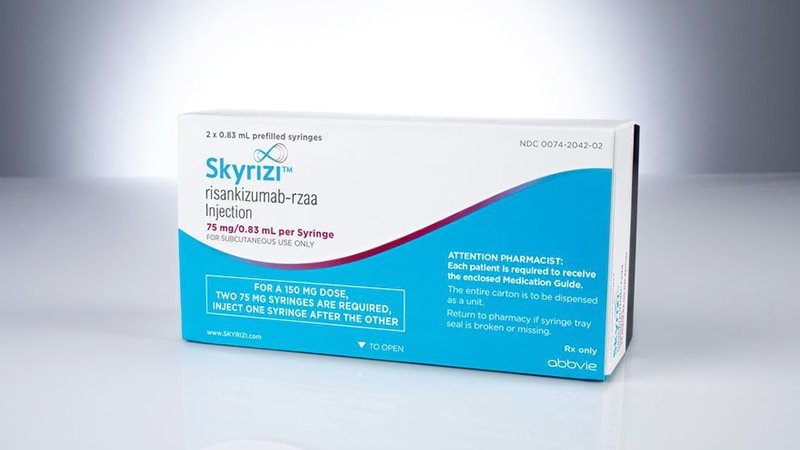The US Food and Drug Administration (FDA) today approved risankizumab-rzaa (Skyrizi) for a second indication – the treatment of adults with active psoriatic arthritis (PsA) – making it the second anti-interleukin-23 monoclonal antibody available for the treatment of PsA Announcement by the manufacturer AbbVie.
The agency previously approved risankizumab in April 2019 for adults with moderate to severe plaque psoriasis.
The dosing regimen for PsA is the same as for patients with moderate to severe plaque psoriasis: a single subcutaneous injection of 150 mg four times a year (after two starting doses at weeks 0 and 4), and it can be administered alone or in combination with disease-modifying anti-inflammatory drugs (DMARDs).
The approval was based on two Phase 3 studies, KEEPsAKE 1 and KEEPsAKE 2. These two studies evaluated the biologic in adults with active PsA, including those who had an inadequate response to or were intolerant to biologic therapy and/or nonbiologic DMARDs had. Meeting the studies’ primary endpoint of at least 20% improvement in American College of Rheumatology Response Criteria (ACR20) at 24 weeks occurred in 51.3% to 57.3% of patients compared to 26.5% to 33.5 % of patients treated with placebo.
Those on risankizumab also achieved significantly higher rates of ACR50 and ACR70 responses than those on placebo. In addition, patients with pre-existing dactylitis and enthesitis experienced amelioration of these PsA manifestations. Risankizumab was also associated with an improvement in physical function at 24 weeks on the Health Assessment Questionnaire-Disability Index, with placebo improving by a mean difference of 0.16 to 0.20 points in the two studies. A significantly higher percentage of patients with psoriatic skin lesions experienced at least a 90% improvement in the Psoriasis Area and Severity Index (PASI 90) with risankizumab compared to placebo.
AbbVie said that the safety profile of risankizumab in patients with PsA is generally consistent with its effects in patients with plaque psoriasis.
Studies KEEPsAKE 1 and KEEPsAKE 2 are ongoing and patients in the long-term extensions of the studies will remain blinded to the original randomization for the duration of the studies.
Phase 3 studies are also ongoing with risankizumab in patients with Crohn’s disease and ulcerative colitis.
For more updates, follow Medscape on Facebook, Twitter, Instagram, YouTube and LinkedIn.

